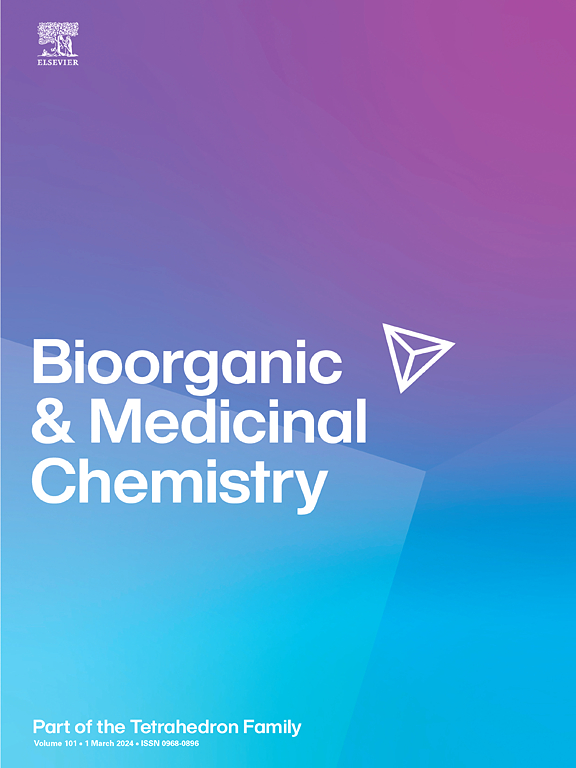Chemical modification for improving drug-like molecular properties of climacostol, a natural resorcinolic lipid
IF 3.3
3区 医学
Q2 BIOCHEMISTRY & MOLECULAR BIOLOGY
引用次数: 0
Abstract
Small organic molecules are compounds that are manufactured through chemical synthesis. One of the key advantages of small molecules is that they have a low molecular weight and simple chemical structures. This allows more predictability to their pharmacokinetics and pharmacodynamics, which means that dosing is simpler. To use small molecules as a useful tool to address human health issues, the collaboration between disciplines, especially chemistry and biology, is essential. In recent years in our laboratories, we have demonstrated that climacostol, a 5-alkenyl resorcinolic produced by eukaryotic microorganisms as secondary metabolite and obtained by our synthetic strategy too, it shows important biological and pharmacological activities. These ones are highly dependent on the 5-alkenyl chain, and chemical modifications to the resorcinolic moiety can be exploited to achieve higher toxicity against pathogen microbes and protists than climacostol. In this study, we have designed and made a synthetic strategy for a new analogue of climacostol (AN3), and evaluated how the new hydroxyl group at position four in the aromatic ring influences its biological effects on prokaryotic and free-living protists and on non-target cells/organisms, especially with regard to cytotoxic properties.

求助全文
约1分钟内获得全文
求助全文
来源期刊

Bioorganic & Medicinal Chemistry
医学-生化与分子生物学
CiteScore
6.80
自引率
2.90%
发文量
413
审稿时长
17 days
期刊介绍:
Bioorganic & Medicinal Chemistry provides an international forum for the publication of full original research papers and critical reviews on molecular interactions in key biological targets such as receptors, channels, enzymes, nucleotides, lipids and saccharides.
The aim of the journal is to promote a better understanding at the molecular level of life processes, and living organisms, as well as the interaction of these with chemical agents. A special feature will be that colour illustrations will be reproduced at no charge to the author, provided that the Editor agrees that colour is essential to the information content of the illustration in question.
 求助内容:
求助内容: 应助结果提醒方式:
应助结果提醒方式:


